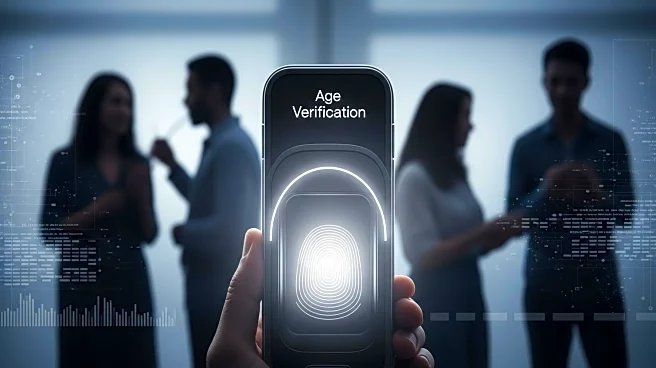What's Happening?
A recent analysis of age assurance technology trial data in Australia has revealed significant racial biases in the software used for age verification, particularly affecting Indigenous and south-east Asian communities. The trial, conducted by the UK-based Age Check Certification Scheme (ACCS), tested various technologies intended to enforce Australia's upcoming social media ban for under-16s. The data indicates that age estimation software is less accurate for individuals from these backgrounds, often misclassifying their ages. Additionally, the software's reliance on facial scanning results in longer wait times for these groups. The trial also highlighted that age verification software, which uses documents like driver's licenses, is unreliable for Indigenous people, though the sample size was too small for statistical significance. Despite these findings, the report summary downplays the differences, claiming consistent performance across demographic groups.
Why It's Important?
The findings of racial bias in age verification software have significant implications for marginalized communities in Australia. As the country prepares to implement a social media ban for under-16s, the inaccuracies in age estimation could lead to unfair access restrictions for young people from Indigenous and south-east Asian backgrounds. This raises concerns about digital equity and the potential for systemic discrimination in technology deployment. The broader impact includes the risk of reinforcing existing social inequalities and the need for more inclusive and accurate technological solutions. Stakeholders such as policymakers, technology developers, and civil rights groups may need to address these biases to ensure fair and equitable access to digital platforms.
What's Next?
As Australia moves towards enforcing the social media ban, there may be increased scrutiny and pressure on technology providers to improve the accuracy and fairness of age verification systems. Policymakers might consider revising guidelines to ensure that age assurance technologies do not disproportionately affect marginalized groups. Additionally, there could be calls for further research and development to enhance the inclusivity of these systems. The eSafety Commissioner and other regulatory bodies may play a crucial role in overseeing these improvements and ensuring compliance with ethical standards.
Beyond the Headlines
The trial's findings highlight broader ethical and cultural challenges in the deployment of AI and machine learning technologies. The biases observed in age verification software reflect a need for more diverse data sets and inclusive training processes to prevent discrimination. This situation underscores the importance of ethical considerations in technology development and the potential consequences of neglecting these aspects. The issue also raises questions about the accountability of technology providers and the role of government oversight in protecting vulnerable populations.











